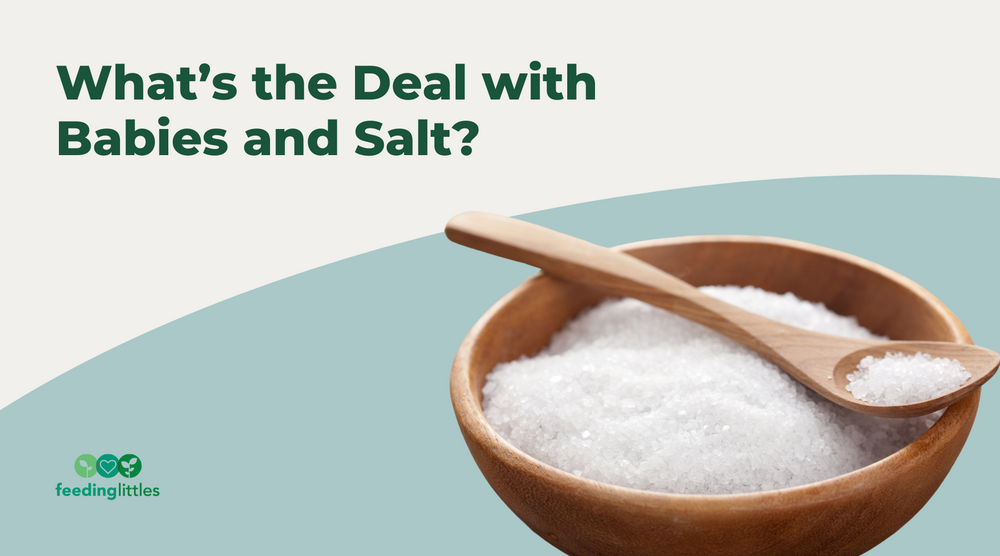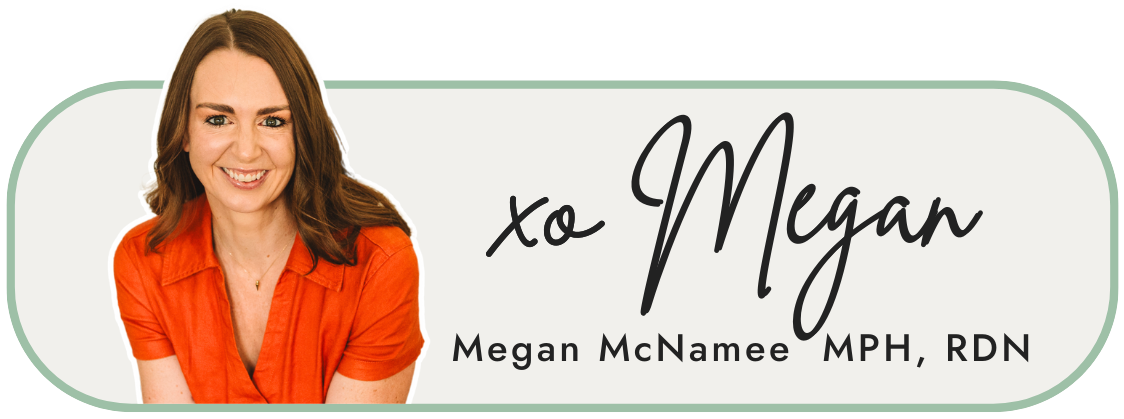
In our infant course on Baby-led Weaning (Infant Self-feeding), we recommend going easy on baby’s salt intake based on available guidelines. So, how much sodium is too much, and do we really need to be worried about salt?
Here's the bottom line: even though guidelines recommend no more than around 400 mg of sodium per day, we don't have good evidence to prove that any more than this amount is harmful.
Sodium is actually considered an essential nutrient. For example, eight ounces of breast milk may contain around 42 milligrams of sodium - but this number varies widely person to person. Babies definitely get sodium every day through breast milk or formula. Sodium helps their body maintain fluid balance, regulate blood pressure, and allow the nervous system to work properly.
While major governing bodies recommend against excess salt in babies, this article by fellow dietitian Lily Nichols RDN, CDE is a fascinating look at why this 400 mg of sodium is simply a guesstimate. Furthermore, she explains that by 4 months, most babies can more easily excrete sodium in their kidneys than they could as a newborn.
To stay on the safe side, we recommend avoiding lots of excess salt in your baby's diet. If you eat a lot of pre-packaged or heavily salted foods, you might want to consider salt in your baby's diet and work to incorporate less salty foods.
However, if your baby isn't eating lots of salty foods regularly, it's OK for them to have some sodium in their food. What could this look like? Avoid adding salt to your baby's diet when possible, but if it's part of the recipe or essential for the flavor of the food, a little salt is OK.
